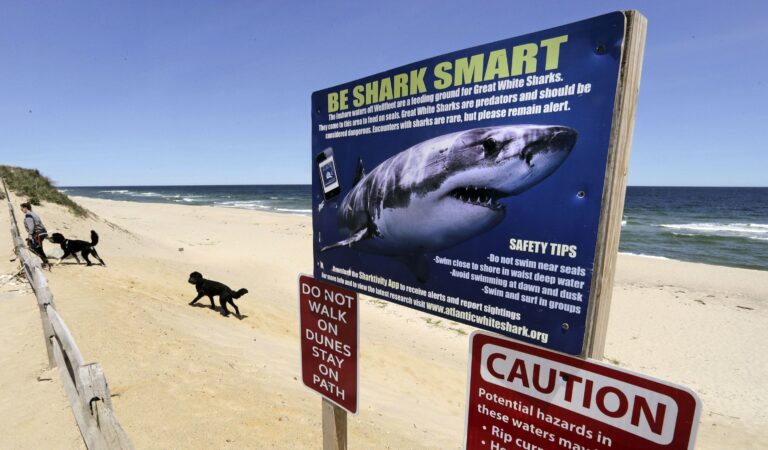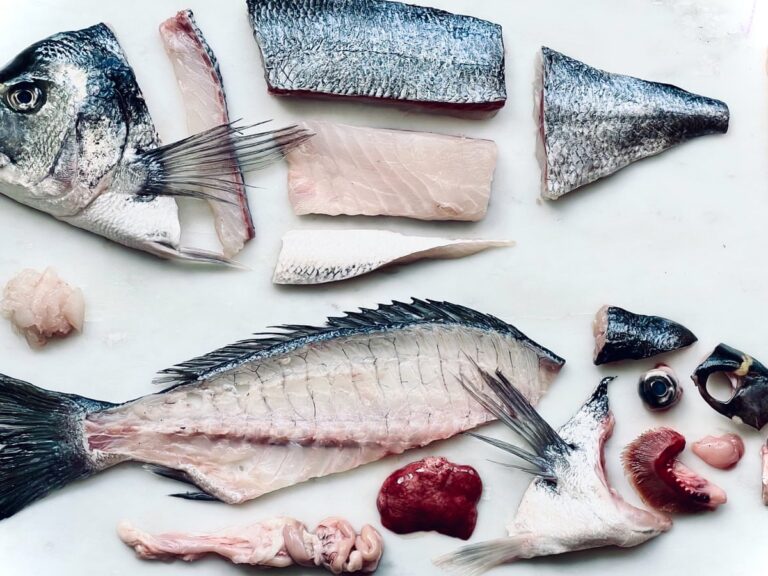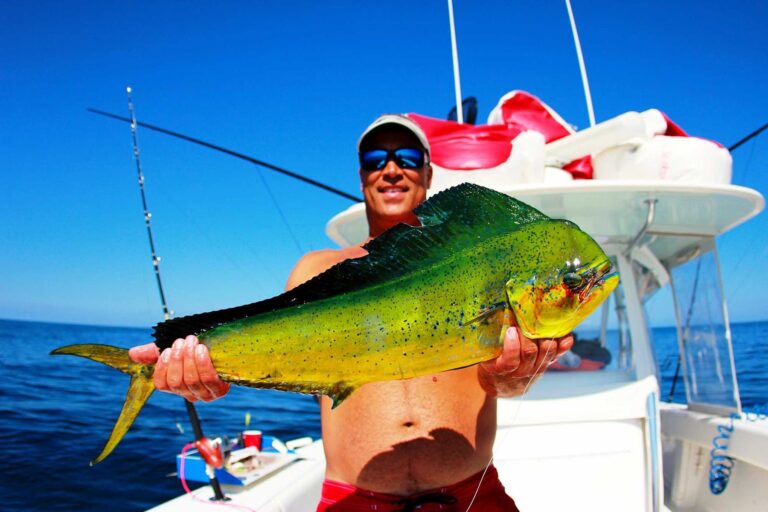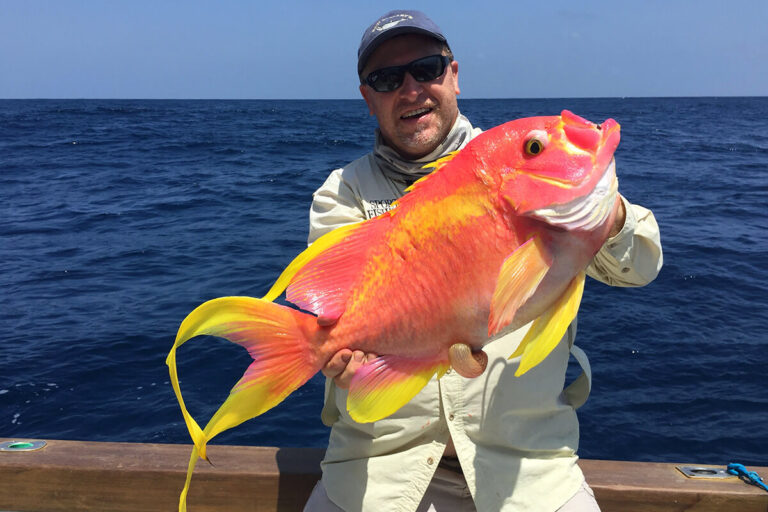Before going deep sea fishing, it is important to know the essentials such as fishing regulations, weather conditions, safety equipment, and the type of fish you want to catch. Deep sea fishing can be an exciting adventure, but being well-prepared can enhance your experience and increase your chances of success.
Understanding the fishing regulations of the area you plan to fish in will ensure you comply with the rules and avoid any legal consequences. Checking the weather conditions beforehand will help you plan your trip accordingly and ensure your safety on the water.
Additionally, having the appropriate safety equipment, such as life jackets and first aid kits, is crucial for any unexpected situations that may arise. Lastly, knowing the types of fish you are targeting will allow you to bring the right equipment and bait for a successful fishing trip.
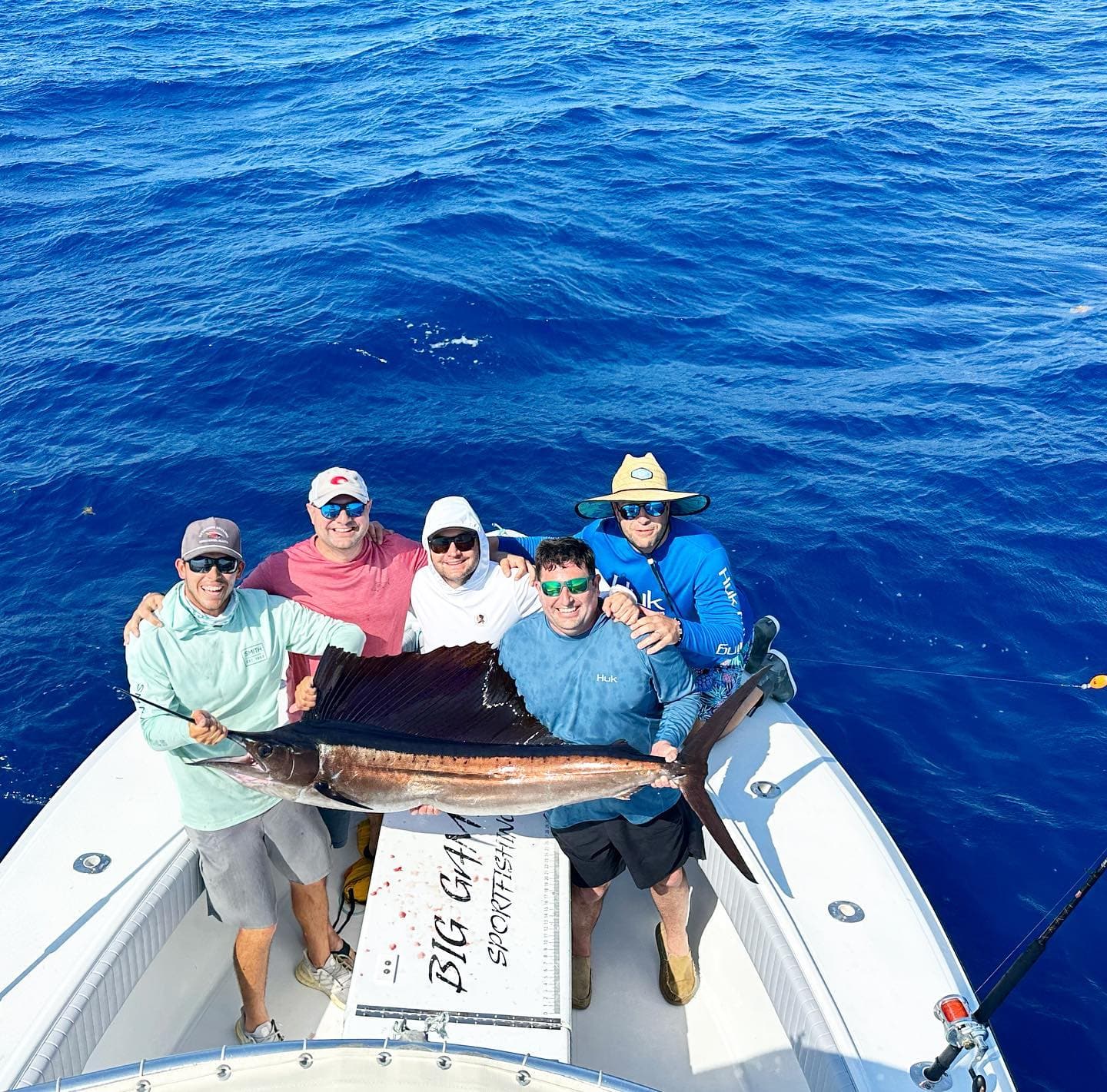
Credit: biggamesportfish.com
Choosing The Right Deep Sea Fishing Destination
Factors To Consider When Selecting A Deep Sea Fishing Location
When planning a deep sea fishing trip, choosing the right destination is crucial. The success and enjoyment of your adventure largely depend on the location you select. Here are some important factors to consider when deciding on a deep sea fishing destination:
- Geographical location: The location of your deep sea fishing trip determines the type of fish species you can expect to encounter. Different regions offer different opportunities, so it’s essential to research areas known for their abundant fish populations.
- Weather conditions: The weather plays a significant role in deep sea fishing. Check the climate patterns of your desired location to ensure favorable conditions during your trip. Unpredictable weather can impact the overall experience and potentially affect your safety.
- Accessibility and transportation: Consider the ease of reaching the fishing destination. Assess the availability of flights, charters, or boat rentals, depending on your preferences. Accessible locations will make your trip more convenient and save valuable time.
- Fishing regulations and licenses: Familiarize yourself with the local fishing regulations and licensing requirements of your chosen destination. Make sure you adhere to all the necessary guidelines to avoid any legal issues during your deep sea fishing excursion.
- Facilities and amenities: Look into the facilities and amenities provided by the fishing destination. Check if there are reputable fishing charters or guides available. It’s essential to ensure that the location offers suitable accommodations, equipment rentals, and amenities to enhance your fishing experience.
Researching Popular Deep Sea Fishing Destinations
Now that you know the factors to consider, it’s time to research popular deep sea fishing destinations. Here are some steps to guide your research:
- Online resources: Utilize the vast amount of information available online to search for popular deep sea fishing locations. Visit fishing forums, read travel blogs, and explore fishing-related websites. These resources often contain valuable insights and firsthand experiences shared by fellow anglers.
- Reviews and ratings: Pay attention to reviews and ratings of different fishing destinations. Ratings can provide an overview of the quality of fishing experiences, facilities, and services offered by various locations. Take note of both positive and negative reviews to make an informed decision.
- Local knowledge: Seek advice from local fishing communities or anglers who have experience with deep sea fishing. They can provide valuable insights and recommend the best places to visit. Engaging with the local fishing community can help you gain insider tips and increase your chances of a successful fishing trip.
Evaluating The Availability Of Different Fish Species In Various Locations
It’s essential to evaluate the availability of different fish species when choosing a deep sea fishing location. Here’s how to assess the fish species in various locations:
- Research fish species: Identify the specific fish species that interest you and their preferred habitats. Some locations are known for particular species, while others offer a diverse range. Consider your preferences and target species to determine the best location for your fishing adventure.
- Seasonal variations: Take into account the seasonal variations in fish populations. Fish behavior and migration patterns change throughout the year. Research the best time to visit your desired location for targeting specific fish species.
- Consult local experts: Reach out to local fishing guides, charter companies, or marine biologists who have extensive knowledge of the area’s fish species. They can provide valuable information on the most suitable time to visit and the likelihood of encountering your desired fish species.
- Check fishing reports: Keep an eye on fishing reports and updates from the area you plan to visit. These reports often provide real-time information on recent catches, hotspots, and the overall fishing conditions. Staying informed will enable you to make a well-informed decision.
Remember, choosing the right deep sea fishing destination requires careful research and consideration of various factors. By evaluating geographical location, weather conditions, accessibility, regulations, and fish species availability, you can ensure an unforgettable and successful deep sea fishing experience.
Essential Gear And Equipment For Deep Sea Fishing
Deep sea fishing is an exhilarating and rewarding experience, but before you embark on your adventure, it’s essential to ensure that you have the right gear and equipment. Having the appropriate tools will not only enhance your fishing skills but also increase your chances of success.
Here is a comprehensive list of gear and equipment required for deep sea fishing:
- Fishing rods: Invest in high-quality rods that are designed specifically for deep sea fishing. These rods are usually longer and more robust to handle the heavyweights of deep-sea fish. Look for rods made from graphite or fiberglass for durability and strength.
- Fishing reels: Choose reels that are designed to withstand the harsh saltwater conditions. Look for reels with a high line capacity to accommodate the long runs often associated with deep sea fishing. Opt for reels made from corrosion-resistant materials such as stainless steel or aluminum for longevity.
- Fishing lines: Use a strong and durable fishing line that can handle the weight and strain of large fish. Braided lines are popular choices for deep sea fishing due to their superior strength and sensitivity. Fluorocarbon lines are also preferred for their invisible nature in the water.
- Hooks and rigs: Stock up on a variety of hooks suitable for different fish species. Circle hooks are commonly used in deep sea fishing as they increase the chances of catching and releasing fish unharmed. Additionally, a supply of pre-made rigs and leaders will come in handy when targeting specific fish.
- Sinkers and weights: Deep sea fishing requires the use of sinkers and weights to ensure your bait reaches the desired depth. Carry a range of sinker sizes to accommodate various fishing conditions and depths.
- Bait and lures: The choice of bait and lures plays a crucial role in attracting fish. Live bait such as squid, shrimp, or small fish are common choices for deep sea fishing. Additionally, artificial lures such as jigs, spoons, and poppers can be effective in enticing fish to strike.
- Tackle box and storage: Keep your gear organized and easily accessible with a tackle box. Look for a waterproof and durable box that can withstand the rigors of saltwater fishing. Invest in additional storage options such as rod holders, coolers, and gear bags to carry all your equipment comfortably.
- Safety equipment: Prioritize your safety by carrying essential items such as life jackets, first aid kits, emergency flares, and a functioning radio or satellite phone for communication. Additionally, consider investing in a personal locator beacon (plb) for added peace of mind.
- Navigation and fish finding tools: Deep sea fishing often requires some navigation skills. Invest in a reliable marine chartplotter or gps system to help you find your way and mark fishing spots accurately. Fish finders and sonar equipment can also be valuable in locating schools of fish underwater.
- Personal comfort: Deep sea fishing trips can be long, so make sure you prepare for your comfort. Pack sunscreen, hats, sunglasses, and appropriate clothing to protect yourself from the sun and elements. Don’t forget to bring food, snacks, and plenty of water to stay hydrated and energized throughout the day.
Understanding The Importance Of High-Quality Rods, Reels, And Lines
Having high-quality rods, reels, and lines is crucial for successful deep sea fishing. Here’s why:
- Durability: Deep sea fishing involves battling powerful fish in challenging conditions. Inferior quality gear may not withstand the strain, leading to breakages and lost catches. Investing in sturdy equipment ensures that your gear will hold up under pressure.
- Strength: Deep sea fish are known for their size and strength. Using rods, reels, and lines specifically designed for deep sea fishing allows you to handle these hefty creatures without risking equipment failure or compromise.
- Sensitivity: High-quality rods and lines offer excellent sensitivity, allowing you to detect even the slightest nibble or bite. This sensitivity is vital in deep sea fishing, where fish may be feeding more subtly in the depths.
Choosing The Right Bait And Lures For Different Fish Species
Selecting the appropriate bait and lures for deep sea fishing is crucial for attracting different fish species. Consider the following:
- Research: Familiarize yourself with the fish species you’re targeting. Learn about their feeding habits, preferred food sources, and common prey items. This knowledge will guide you in choosing the most effective bait and lures.
- Live bait: Live bait such as squid, shrimp, and small fish like sardines or mackerels are often preferred by deep-sea fish. These natural offerings mimic the prey found in their environment, increasing your chances of enticing a bite.
- Artificial lures: Artificial lures come in a wide range of colors, shapes, and sizes. Experiment with different types of lures, such as jigs, spoons, or poppers, to determine which ones attract the desired fish species. Consider factors such as depth, water conditions, and target species when selecting lures.
- Fish size: Match your bait and lures to the size of the fish you’re targeting. Larger fish will require bigger bait or lures that imitate larger prey, while smaller fish may be enticed by smaller offerings.
By understanding the importance of high-quality gear and selecting the right bait and lures for different fish species, you’ll be well-equipped for a successful deep sea fishing excursion. Prepare your gear, study your target fish, and get ready for an exciting adventure on the open waters.
Safety Precautions And Tips For Deep Sea Fishing
Understanding The Risks And Hazards Associated With Deep Sea Fishing
Deep sea fishing can be an exciting and memorable experience for both seasoned anglers and beginners alike. However, it is important to understand and be aware of the risks and hazards that come with this adventure. Here are a few key points to consider:
- Unpredictable weather conditions: The open ocean is notorious for its unpredictable weather patterns. Before heading out, always check the weather forecast and be prepared for any changes in conditions while at sea.
- Potential for rough waters: Deep sea fishing often takes place in deeper waters, where waves can be larger and more powerful. It’s crucial to have a sturdy and well-equipped boat to ensure stability and safety.
- Sea sickness: The rolling motion of the boat combined with the strong smell of fish can lead to seasickness, causing discomfort and even nausea. Consider taking motion sickness medication if you are prone to sea sickness.
- Injuries: Fishing involves handling sharp hooks, heavy gear, and potentially strong fish. It is important to exercise caution and follow proper techniques to avoid accidents or injuries.
- Lack of immediate medical assistance: When venturing far out at sea, medical help may not be readily available in case of emergencies. It is essential to be prepared with basic first aid knowledge and carry a well-stocked first aid kit on board.
Importance Of Wearing Appropriate Safety Gear, Including Life Jackets
Safety gear plays a crucial role in ensuring the well-being and protection of everyone onboard during a deep sea fishing excursion. Here’s why wearing proper safety gear, including life jackets, is of utmost importance:
- Personal flotation devices (pfds): Wearing a life jacket or pfd can be a life-saving measure in case of an accident or unexpected fall overboard. They provide buoyancy and help keep you afloat until help arrives.
- Unexpected weather or boat issues: Even the most experienced captains can face unexpected situations at sea. Wearing a life jacket ensures that you are prepared for any unforeseen circumstances, such as boat capsizing or taking on water.
- Law and regulations: Many countries and states have laws that mandate the use of life jackets on boats, particularly for children and in certain areas. Familiarize yourself with the regulations in your location and always abide by them to avoid penalties.
- Lead by example: Wearing a life jacket sets a good example for others on board, especially if you are fishing with children or inexperienced anglers. It promotes a culture of safety and emphasizes the importance of preparedness.
Learning About Basic First Aid Techniques For Common Fishing Injuries
Accidents can happen while deep sea fishing, and being prepared with basic first aid knowledge can make a significant difference in the outcome. Here are a few fundamental first aid techniques to learn and keep in mind:
- Cuts and bruises: Fishing involves handling sharp hooks and potentially slippery surfaces, which can lead to cuts or bruises. Clean the wound with clean water, apply pressure to stop bleeding, and use antiseptic or bandages as needed.
- Hook injuries: Having a hook embedded in the skin can be painful and tricky to remove. Avoid yanking the hook out forcefully. Instead, carefully remove the hook using pliers or seek medical help if needed.
- Minor burns: Whether it’s from hot fishing gear or the sun, minor burns can occur during a fishing trip. Cool the burn with cold water or a cold compress and cover it with a sterile dressing.
- Sprains and strains: Fishing can involve repetitive motions and physical strain. If you experience a sprain or strain, rest the affected area, apply ice or a cold compress, and elevate it if possible.
- Sunburn and dehydration: Spending long hours under the sun can lead to sunburn and dehydration. Protect your skin with sunscreen, wear protective clothing, and stay hydrated by drinking plenty of water throughout the trip.
Remember, being knowledgeable about basic first aid techniques can provide peace of mind and help you effectively respond to common fishing injuries. It is always recommended to take a first aid course or consult with a medical professional for comprehensive training and guidance.
Stay safe and enjoy your deep sea fishing adventure!
Conclusion
Deep sea fishing can be an exhilarating and unforgettable experience for those willing to venture out into the open waters. As we reach the end of this blog post, it is important to remember a few key points before embarking on your deep sea fishing adventure.
Firstly, ensure you are well-prepared and equipped with the necessary gear and supplies. Secondly, take into consideration the seasons and weather conditions, as they can greatly impact your fishing experience. Thirdly, familiarize yourself with local regulations and any necessary licenses or permits required.
Lastly, prioritize safety at all times, following the guidance provided by experienced captains and crew members. By keeping these factors in mind, you can make the most of your deep sea fishing trip and create memories that will last a lifetime.
So, gear up, get ready, and cast your line into the deep blue waters for an extraordinary journey of angling excitement.

